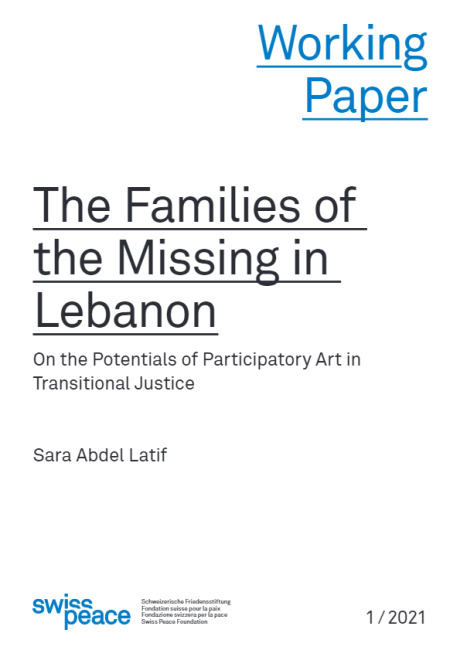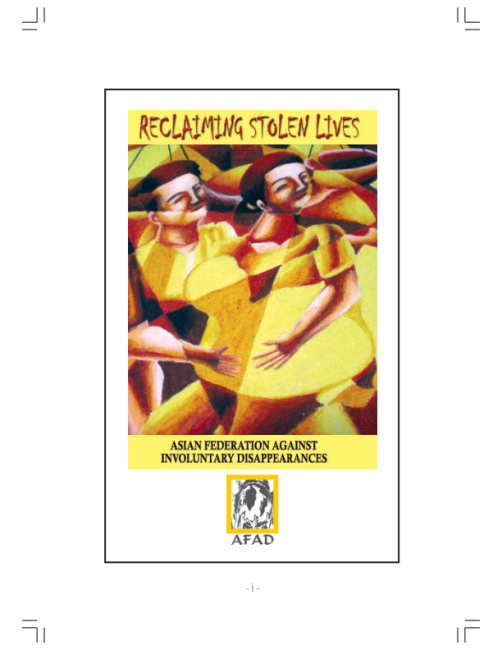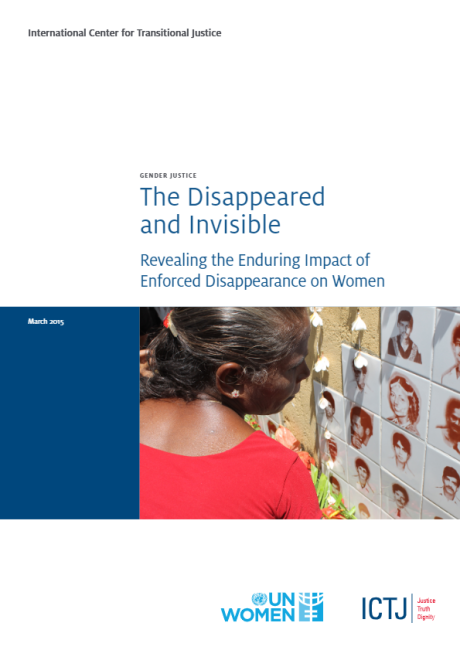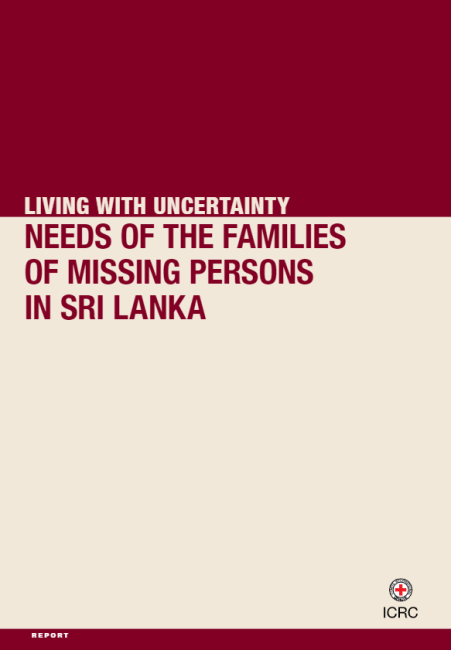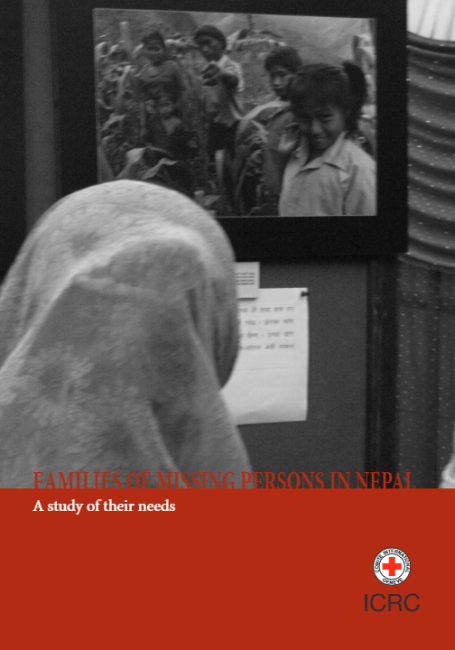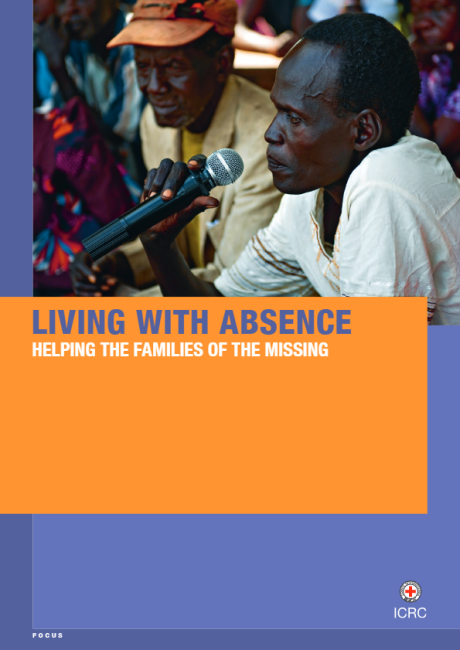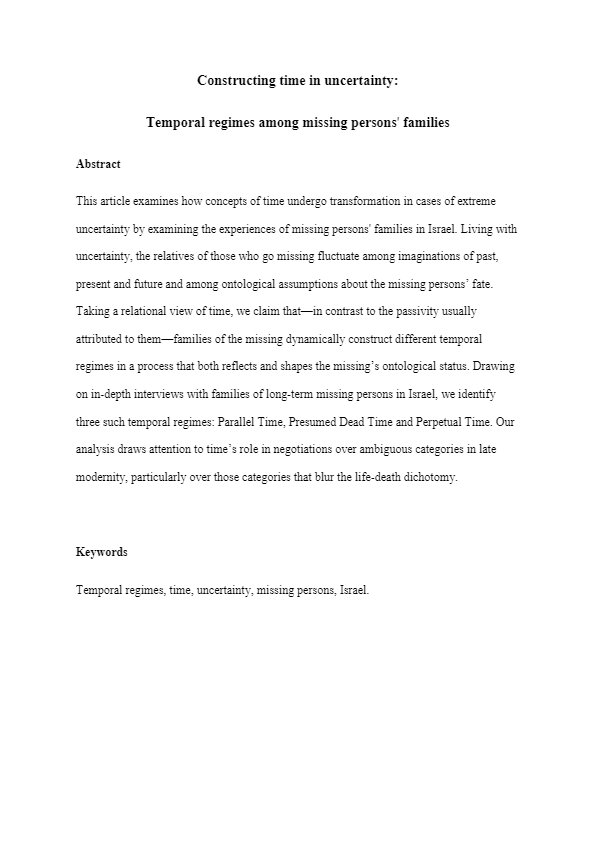
Constructing time in uncertainty: Temporal regimes among missing persons’ families
This article examines how concepts of time undergo transformation in cases of extreme uncertainty by examining the experiences of missing persons’ families in Israel. Living with uncertainty, the relatives of those who go missing fluctuate among imaginations of past, present and future and among ontological assumptions about the missing persons’ fate. Taking a relational view of time, the authors claim that – in contrast to the passivity usually attributed to them – families of the missing dynamically construct different temporal regimes in a process that both reflects and shapes the missing’s ontological status. Drawing on in-depth interviews with families of long-term missing persons in Israel, the authors identify three such temporal regimes: Parallel Time, Presumed Dead Time and Perpetual Time. Their analysis draws attention to time’s role in negotiations over ambiguous categories in late modernity, particularly over those categories that blur the life–death dichotomy.


